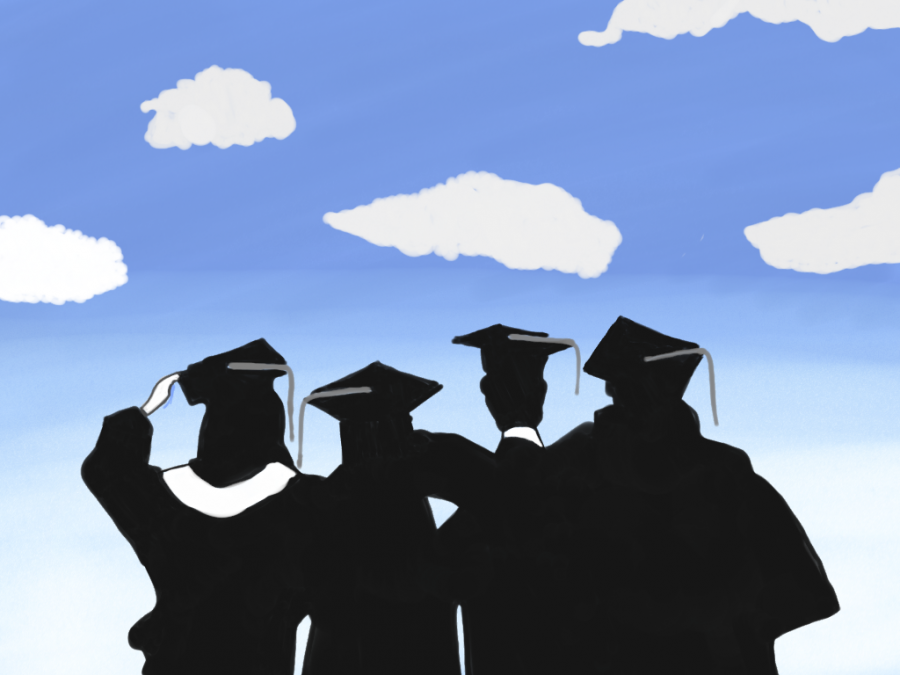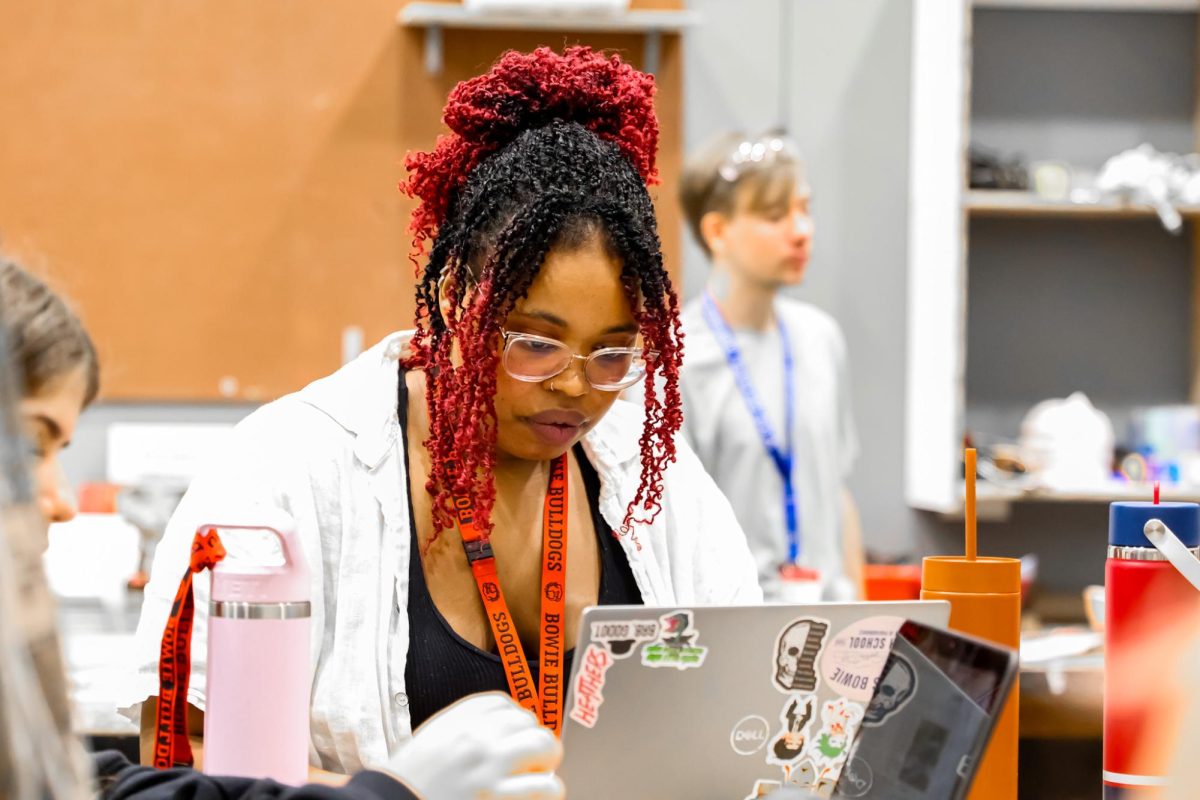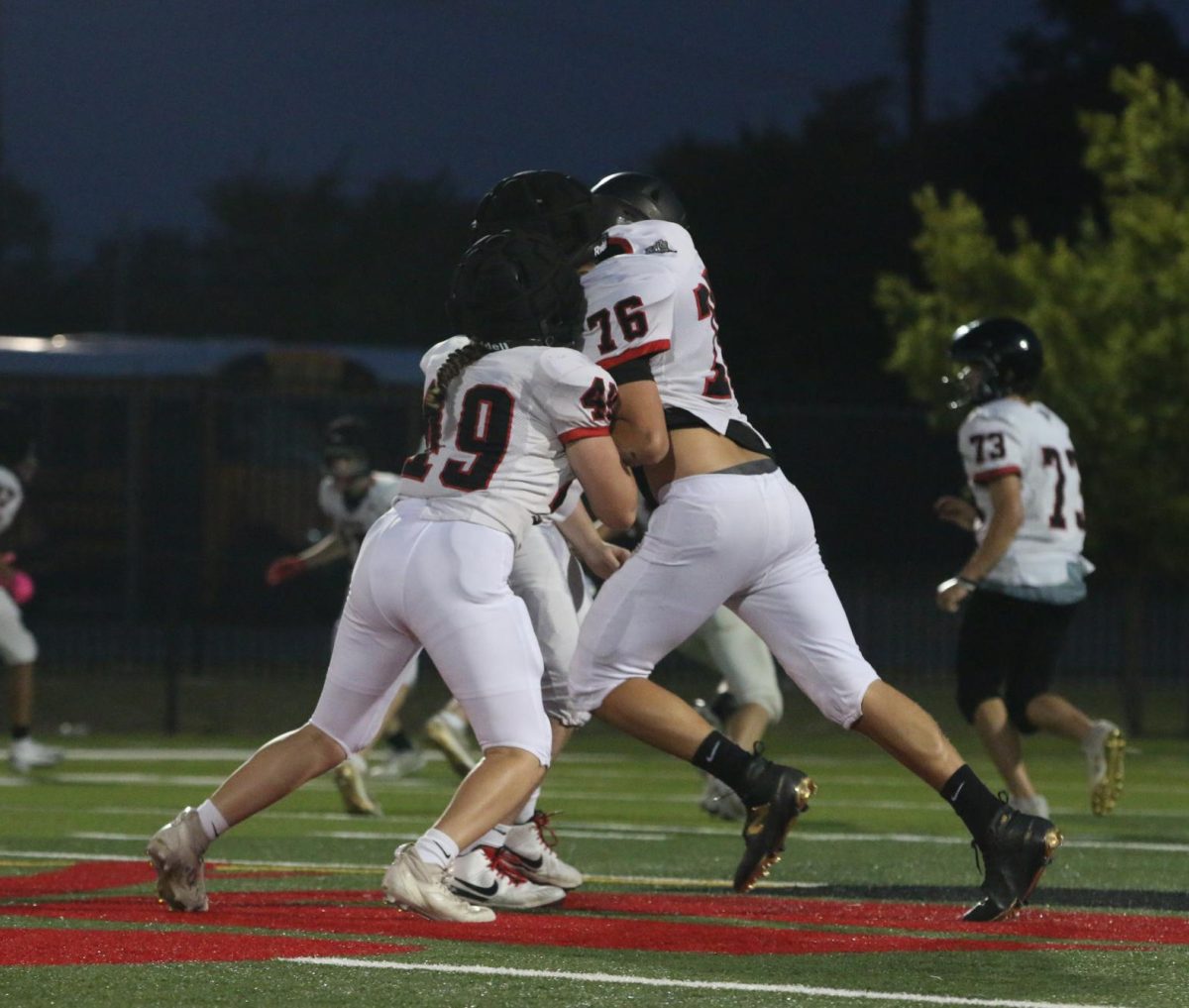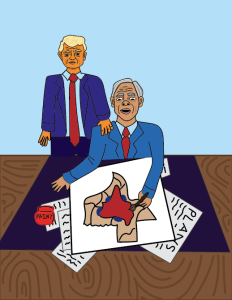What it is like to graduate in the midst of a global crisis
The Coronavirus pandamic has spread on an international scale affecting seniors who expect to graduate this year.
March 27, 2020
In just two months, senior Sarah Israel was expecting to hear her name called and to take the traditional walk across the stage at graduation. This long-awaited rite of passage would represent more than just an end to high school life, it would symbolize her transition into adulthood. What is waiting for her probably will not change: college tuition, college classes, debt, and eventually job searches, but for now, she copes with an unprecedented obstacle. COVID-19 arrived and has changed her world.
According to who.int, the World Health Organization (WHO) officially classified COVID-19 (Coronavirus) as a pandemic on March 11, which means that it is a virus that has spread substantially on an international scale.
“[When I heard] that the Coronavirus had been classified as a pandemic, it felt unreal like something out of a book,” Israel said. “I was kind of scared by what that meant next for the United States and the world as a whole.”
Although cases of COVID-19 were already reported in Texas, it was not until March 12 that two presumptive positive cases of Coronavirus were identified in the Austin community. After the cases were identified, the Austin Independent School District (AISD) closed all school related facilities the following day.
“I was a bit irritated that [classes] had to be canceled,” senior Liam Kornacki said. “However, I understand that it was for the sake of not spreading the virus.”
As school facilities and events were cancelled, Israel was no longer able to take part in her senior season of club volleyball, and she had to cancel one of her college visits.
“I feel really sad [about the cancellations] because I am a senior and it’s my last year for a lot of things,” Israel said. “However, I understand because I care about the health of everyone.”
After the number of COVID-19 cases in Austin continued to increase, Austin Mayor Steve Adler released a “stay home, work safe” ordinance on March 24 that required all non-essential work and activity to cease, allowing only jobs and tasks labeled as necessary.
“It is very stressful to go into quarantine,” Kornacki said. “Given the current situation, I can understand the need for quarantine; however, it is a difficult mindset to get into.”
This isn’t the first time Bowie students have had an uncertain future. Bowie Class of 2002 alumni Melanie Plummer can relate to the current seniors because she was in school when the 9/11 attacks took place, and her graduating class fell under the shadow of that tragic event.
“[After the attacks,] there was fear and a lot of sadness because people were just so uncertain of what was going on,” Plummer said. “None of us had ever experienced anything like that. It was much like Coronavirus today because we have never experienced a pandemic like this before.”
In addition to Israel’s concerns for the health of her community, she is also uncertain about the economic future of the nation as increased unemployment and the shuttering of unessential businesses foster an unstable economy.
“I feel as if [the pandemic] does add stress because after high school I will be in charge of my life and in something like this pandemic that’s terrifying,” Israel said. “I can barely take care of a plant let alone myself.”
According to Bowie Principal Mark Robinson, prom and graduation has not been postponed or canceled at this time. As of now, large gatherings in Austin have only been prohibited until May 1, and both prom and graduation are scheduled after that date.
“I hope that y’all get to have some of those last memories because it just breaks my heart for y’all that y’all might not get to go back,” Plummer said. “However, you have to move on with your life because we are Americans, you know, and we have and will recover.”
Because Robinson understands that this is a difficult time for all students, he urges seniors and their peers to develop methods to stay productive and engaged in their communities.
“Access your support network – friend, family, and philosophy – that helps you make sense of how the Coronavirus is impacting you personally and stay positive,” Robinson said. “Prepare yourself by making good decisions for you personally and continue to set reasonable goals and work toward accomplishing them.”
When Plummer reflected on her experience as a student during a national crisis, she explained that it was her community’s sense of unity that helped her and her peers heal faster.
“Don’t stop doing what you need to do to get to that next step, don’t stop applying for those schools, keep looking forward to the future because the world is not stopping, and we’re going to keep moving forward,” Plummer said. “Try to take the rest and the break that you need to get through this kind of emotion, but at the end of the day you still need to get done what you need to get done to move forward because the world is not over.”
In response to the “stay home, work safe” ordinance, AISD closed all of their facilities and offices until April 13; however, the district is still encouraging students to stay intellectually engaged over the prolonged closure. Although the buildings are closed, the school will return for all students in some form of remote learning on April 6.
“Due to the quarantine there’s not too much I can do outside of the house,” Kornacki said. “However, I can still review the material as well as any admissions advice for the university I’m attending next year.”
In addition to maintaining educational progress, Robinson also recommends that seniors use the time at home to develop positive habits that can be vital to life after high school.
“This is a tremendous opportunity for seniors to focus on life skills like cooking, laundry, and good cleaning habits,” Robinson said. “Life, after high school may or may not be at home, therefore, developing good habits now, will serve students well for whatever happens next.”
Although Plummer understands that COVID-19 is a situation not to be taken lightly, she knows that one day it will be an experience that students today are able to grow and learn from.
“I mean we have lived through 9/11, we have lived through the crash of 2008, and that was right after we were starting our lives,” Plummer said. “Every so often something big like this is going to happen, and it is how you roll with those things and how you learn from them that is important.”
As the world and the Austin community continue to feel the consequences of the COVID-19 pandemic, Robinson believes that the senior class of 2020 will be able to overcome the obstacles.
“The Class of 2020 has demonstrated tremendous resiliency and a strong determination to control their future,” Robinson said. “From the beginning of the year, this senior class has been very thoughtful about the legacy that they have wanted to leave at Bowie. Who knew that the opportunity would be so tremendous.”










